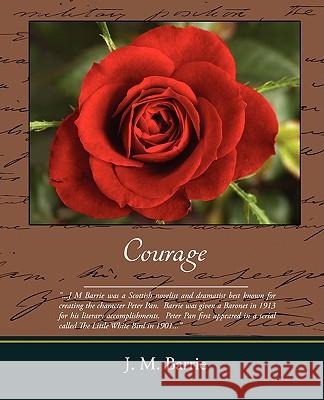Courage » książka
Courage
ISBN-13: 9781438503417 / Angielski / Miękka / 2008 / 48 str.
Courage
ISBN-13: 9781438503417 / Angielski / Miękka / 2008 / 48 str.
(netto: 49,12 VAT: 5%)
Najniższa cena z 30 dni: 50,87
ok. 16-18 dni roboczych.
Darmowa dostawa!
J M Barrie was a Scottish novelist and dramatist best known for creating the character Peter Pan. Barrie was given a Baronet in 1913 for his literary accomplishments. Peter Pan first appeared in a serial called The Little White Bird in 1901. Courage was the Rectorial Address delivered at St Andrews University on May 3, 1922. Barrie began his speech with these words. "You have had many rectors here in St. Andrews who will continue in bloom long after the lowly ones such as I am are dead and rotten and forgotten. They are the roses in December; you remember someone said that God gave us memory so that we might have roses in December. But I do not envy the great ones. In my experience--and you may find in the end it is yours also--the people I have cared for most and who have seemed most worth caring for--my December roses--have been very simple folk. Yet I wish that for this hour I could swell into someone of importance, so as to do you credit. I suppose you had a melting for me because I was hewn out of one of your own quarries, walked similar academic groves, and have trudged the road on which you will soon set forth. I would that I could put into your hands a staff for that somewhat bloody march, for though there is much about myself that I conceal from other people, to help you I would expose every cranny of my mind. "
J M Barrie was a Scottish novelist and dramatist best known for creating the character Peter Pan. Barrie was given a Baronet in 1913 for his literary accomplishments. Peter Pan first appeared in a serial called The Little White Bird in 1901. Courage was the Rectorial Address delivered at St Andrews University on May 3, 1922. Barrie began his speech with these words. “You have had many rectors here in St. Andrews who will continue in bloom long after the lowly ones such as I am are dead and rotten and forgotten. They are the roses in December; you remember someone said that God gave us memory so that we might have roses in December. But I do not envy the great ones. In my experience--and you may find in the end it is yours also--the people I have cared for most and who have seemed most worth caring for--my December roses--have been very simple folk. Yet I wish that for this hour I could swell into someone of importance, so as to do you credit. I suppose you had a melting for me because I was hewn out of one of your own quarries, walked similar academic groves, and have trudged the road on which you will soon set forth. I would that I could put into your hands a staff for that somewhat bloody march, for though there is much about myself that I conceal from other people, to help you I would expose every cranny of my mind. "











